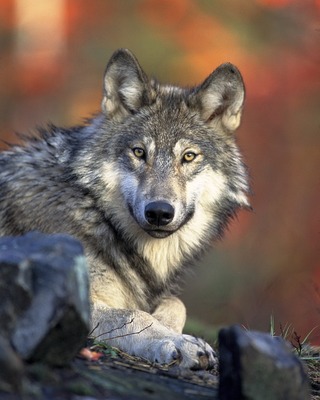Wisconsin GOP Introduce Bills to Set Wolf Population Goal for the State
Thursday, December 7th, 2023 -- 10:00 AM

(Wisconsin Ag Connection) Two GOP bills that would require the state to set a specific numerical wolf population goal in future gray wolf management plans are pitting agriculture and pro-hunting interests against some conservation and animal welfare groups.
According to the Wisconsin Ag Connection, agriculture and hunting and wildlife interests that support Assembly Bill 137 and Senate Bill 139 want the Department of Natural Resources to continue a 1999 plan that set a state wolf population goal of 350 animals.
Agriculture and pro-hunting interests have long sought a lower wolf population in Wisconsin, claiming the animals prey on livestock and decimate deer populations. A new wolf management plan, approved by the Natural Resources Board in late October, recommended a statewide wolf population goal of about 1,000 animals but does not set a specific figure.
The Department of Natural Resources has estimated there are about 1,100 grey wolves in Wisconsin. Animal rights advocates and conservation groups say they oppose the bills because numeric population goals are unscientific and outdated.
The new wolf management plan, minus a static wolf population numerical goal, provides the DNR with flexibility to manage roaming packs when they over-populate a region and cause problems, as well as protect them in areas where they are not firmly established.
One animal welfare group, the Great Lakes Wildlife Alliance, sued the DNR earlier this month, claiming it violated the state’s open meetings law in approving a plan that the group felt sided too much with pro-hunting and agriculture interests.
Wisconsin’s wolf hunting season, established in 2021, was suspended last year after a federal judge placed the animal back on the federal endangered species list for the lower 48 states. Hunting could resume, kicking in the need for a statewide management plan, if the species is removed from the list.
Feel free to contact us with questions and/or comments.




